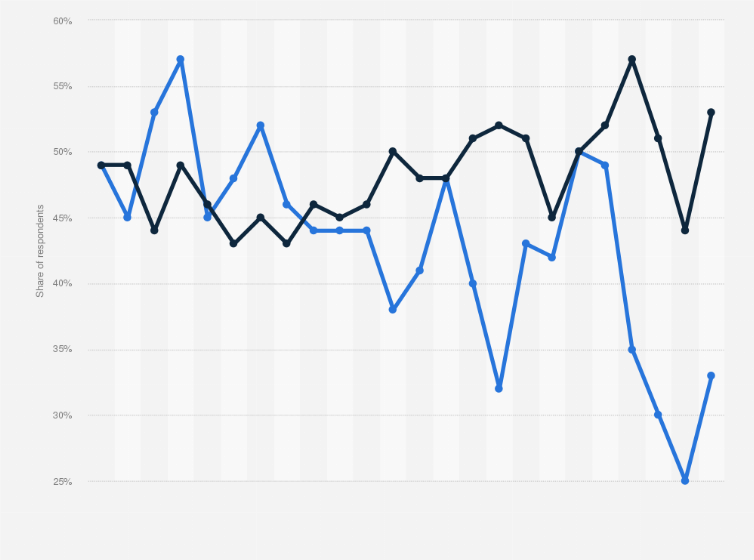
Satisfaction with U.S. education 2001-2024, by party
In recent years, Americans have become less satisfied with the K-12 education system in the United States. While neither political party has ever been extremely satisfied with the quality of K-12 education in the United States, issues relating to K-12 schools have recently led to political controversy. From 2017 to 2020, Democrats and Republicans had similar satisfaction levels of around
**
percent towards the U.S. education system. However, while Democrats reported little change in satisfaction towards education since 2020, Republican satisfaction decreased over this same time period, from Log in or register to access precise data.
**
percent in 2020 to Log in or register to access precise data.
**
percent by 2024. Log in or register to access precise data.
The political stance of parents
Parents of K-12 students have been found to have widely different views on what their children should learn at school based on their political stance. For example, parents of K-12 students who identified as Republican were found more likely than Democrats to believe that public school teachers should be allowed to lead students in Christian prayers even if prayers from other religions are not offered, while 63 percent of surveyed Democratic parents believed that teachers should not be allowed to lead students in any type of prayers at all. In addition, parents of K-12 students had different views on how slavery should be taught to children in school, with the majority of Democratic parents believing that children should be taught that the legacy of slavery still affects the position of Black people in American society today while 66 percent of Republican parents said that children should be taught that slavery does not affect the position of Black people in American society today.
Parents vs parents
Along with the tendency to disagree on what children should learn at school, parents of K-12 parents also have different views on who should oversee what schools are teaching. In 2022, Republican parents were found much more likely to believe that their local school board has too much influence over what public K-12 schools are teaching in the United States while Democrats were more likely to believe that parents had too much influence. This increasing division between parents has partially been attributed to the effects of the COVID-19 pandemic, as children were deeply impacted by the pandemic’s effect on their education. Consequently, the impact of these effects, as many children were disrupted by online learning or illness, may have increased anxieties for parents on how their children are being taught in school and exacerbated polarization between parents with different ideologies.












